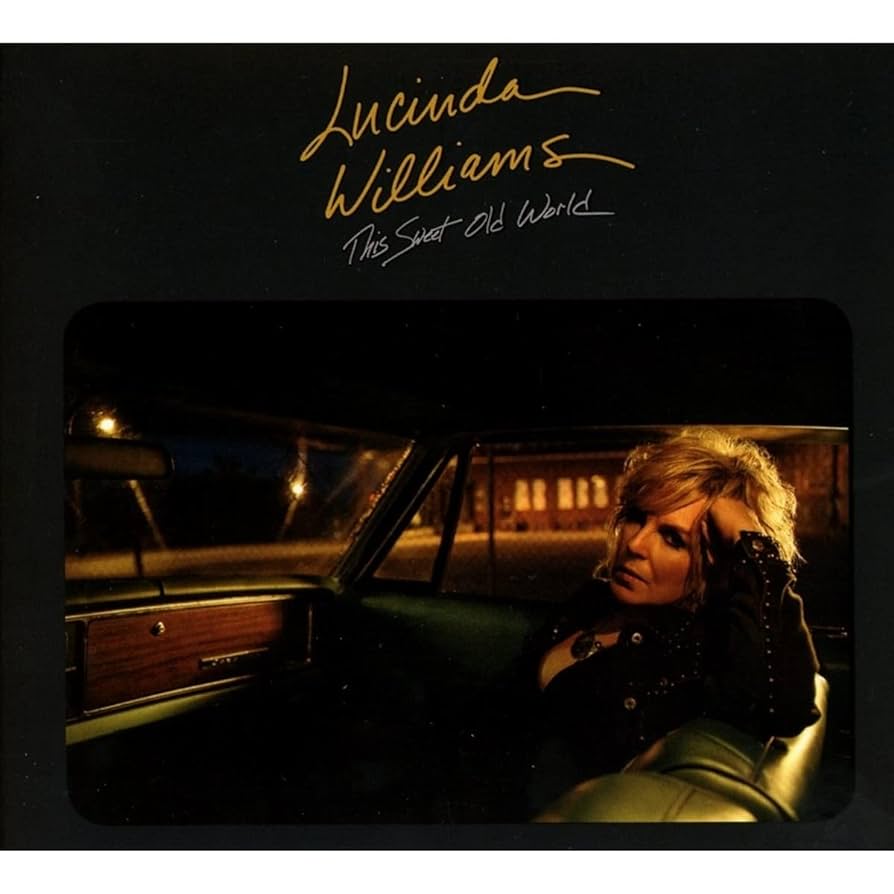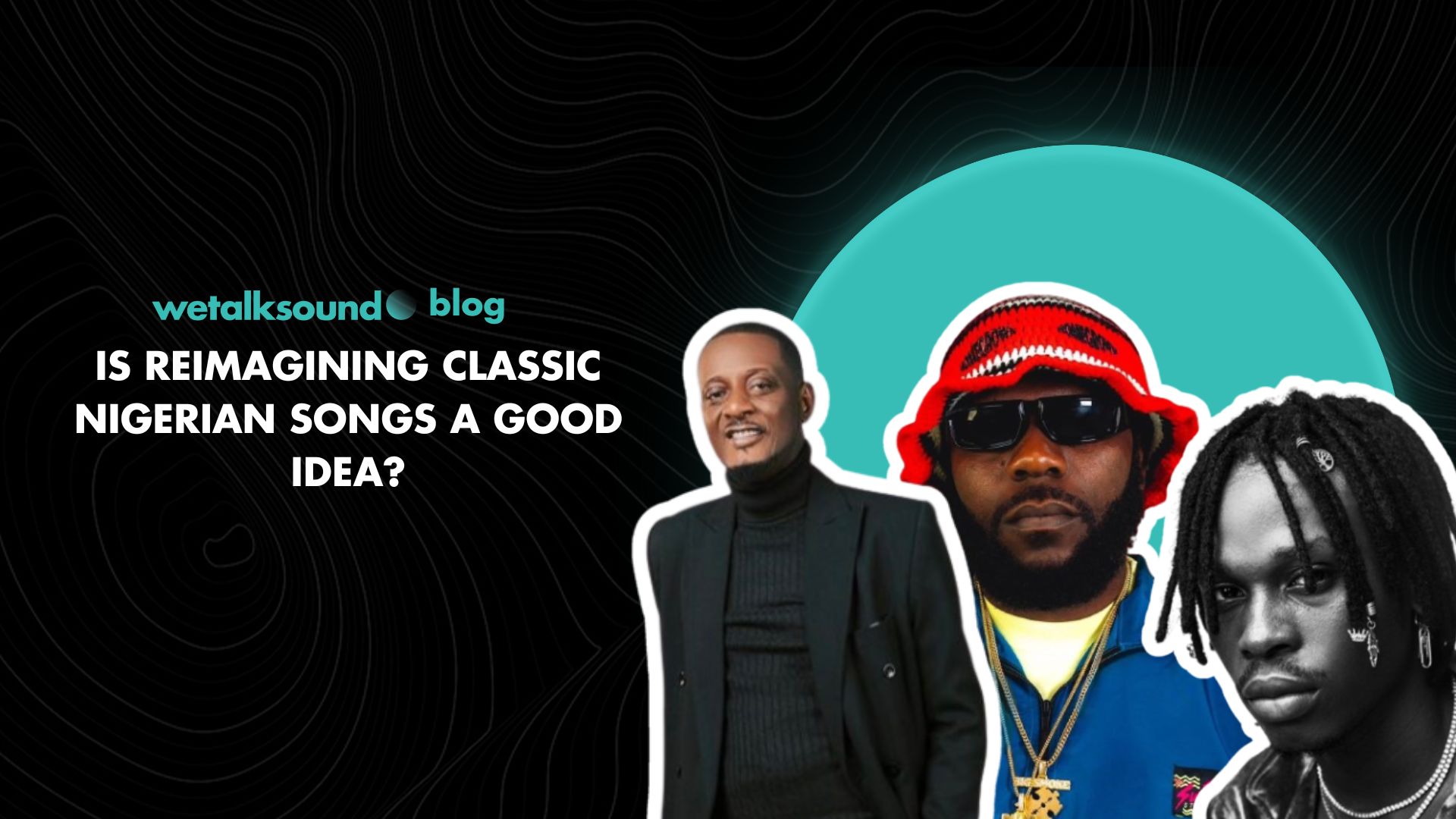Nigerian Twitter was thrown into a frenzy recently when the “reimagined” version of Styl Plus’s trans-generational hit record ‘Olufunmi’ was made available to the audience.
The brand new single is the second pre-released single off legendary Nigerian producer ID Cabasa’s forthcoming album. The album is a collection of classic Nigerian records repackaged and re-created in a bid to breathe new life into these old songs.
ID Cabasa had initially released the reimagined version of 9ice’s ‘Photocopy’ in November 2023. The reimagined version featured Vector and received many positive reviews from critics and fans.
However, Cabasa’s latest release, which is a newer version of one of Nigeria’s most beloved records, was the subject of unfavourable conversations across social media.


The concept of reimagining classic songs
While the Nigerian audience may not be familiar with the concept of reimagining classic records and even albums, it is not a new one.
In 2017, American contemporary folk and alternative country musician Lucinda Williams recorded and released a new version of her 1992 critically acclaimed album ‘Sweet Old World’ to celebrate its 25th anniversary. The newer version of the album was titled ‘This Sweet Old World’.

American folk rock singer-songwriter Paul Simon’s 14th studio album, “In the Blue Light,” is comprised of re-recordings of unpopular songs from Simon’s catalogue. The new releases were remade with modifications to their original arrangements, structures, and lyrics.
Buffy Sainte-Marie’s “Power in the Blood” album, released in 2015, has new takes on previous songs, including a modernised version of 1964’s ‘It’s My Way.’
In 2021, Budweiser premiered the debut season of the Budweiser Smooth Kings remix. The idea behind the show was to put musicians in pairs to remake classic Nigerian songs, with production handled by Gospel on de Beatz and Alternate Sounds. The remixed songs were eventually released as a compilation album. The show ran for two seasons.
Why is ID Cabasa reimagining classic Nigerian songs?
There are a number of reasons as to why the Maverick producer would decide to repackage these records.
One would believe that the major reason for this would be to breathe new life into these songs. This essentially means reviving the appeal or relevancy of a classic while putting a new spin on a well-known song.
It’s a way to honour music’s enduring appeal while keeping it interesting and fun for a younger audience.
The new songs were not created to replace the original version. What Cabasa is doing is simply giving the older records an opportunity to extend their longevity and transgenerational impact by offering a new perspective and appealing to a younger audience. This explains the inclusion of superstars that the new generation is familiar with.
This would then lead to revenue generated from sales and streaming as well as sync licensing. Styl Plus has an opportunity to make much more money from the song in the streaming era than they would have made in 2008.
The creators of the original version also get an opportunity to reinvent themselves and appeal to a new audience, extending or reigniting their careers in the process.
Is reimagining classic Nigerian songs a good idea?
The long and short answer is a simple yes. Artistically and commercially, it makes a lot of sense.
These records can be sonically updated by fusing contemporary elements and instrumentations and also reworking the production style and arrangements to make them sound fresh and exciting.
Every song deserves another chance. Regardless of how great the reception was when it was initially released, it’s only right that it be given another opportunity to be appreciated and heard.
It is also very possible that gems and deep cuts that were overlooked and underappreciated can be discovered by a different generation and recognised for their quality and brilliance.
Some people argue that the essence and appeal of the song may be lost in the process of remodification. This writer strongly disagrees.
A truly great song will never lose its essence or appeal in the process of evolution and reimagination. A great song has undiminishing staying power. It never goes away. It doesn’t matter how many times it is reimagined or refixed; the quality of a great song will forever remain.
So far, ID Cabasa has gone 2/2. ‘Photocopy reimagined’ and ‘Olufunmi reimagined’ are two fantastic remakes of classic records that Nigerian music lovers hold dear.
Vector’s smooth flow and delivery cascade over the smooth rhythms of the reimagined version, which utilises log drums and an underlying guitar melody that creates a soothing feeling while retaining the vibrant atmosphere of the original version.
On the original record, 9ice simply declares that he is one of a kind and cannot be cloned. A narrative vector reinforces the record while adding proverbs rich in Yoruba mythology.
The original record is an electrifying, fast-paced hip-hop record, while the reimagined record is a much calmer record that incorporates elements from Amapiano and contemporary Afrobeats.
The much-critiqued ‘Olufunmi reimagined’ is a decent remake of a classic record that dwells forever in the hearts of Nigerian music lovers across generations.
The reimagined version of the record incorporates contemporary Afropop elements, which are different from the fusion of 2000s R&B and hip-hop that the original record was built upon.
The opening sequence sets the tone for the record, creating a dreamy and inviting atmosphere. Fireboy DML professes love to his muse with vocal prowess, while Odumodublvck’s delivers a solid rap verse that approaches love through profanity. He creates a fresh perspective, defined by his vibrant personality and swaggering delivery. Not to forget impressive displays from Boj and Joeboy.
It was never going to be an easy task to recreate a record like ‘Olufunmi’. Especially when you consider the unbreakable hold that record has on Nigerians. There’s almost nothing anybody would do on that record that would be considered enough.
One can only appreciate ID Cabasa for his innovation to recreate the music that defined the past and brilliantly repackage it to excite the new generation and extend its longevity.
Nigerian mainstream music is at a point where the soundscape seems to need a new sonic direction. The music that has dominated the Nigerian pop scene has become stale, hence the need for an evolution of Afrobeats.
One of the ways we can evolve the sound is by creatively exploring and transforming the music of the past into fresh, exciting, and contemporary offerings that provoke nostalgia as well as new energy and enthusiasm.
We need more creatives to take the initiative and innovatively recreate these classics. It doesn’t have to be a popular or timeless record. The deep cuts that were never truly appreciated can be reimagined and given another opportunity to be heard.
Now we excitedly anticipate ID Cabasa’s forthcoming album.

Leave a Reply